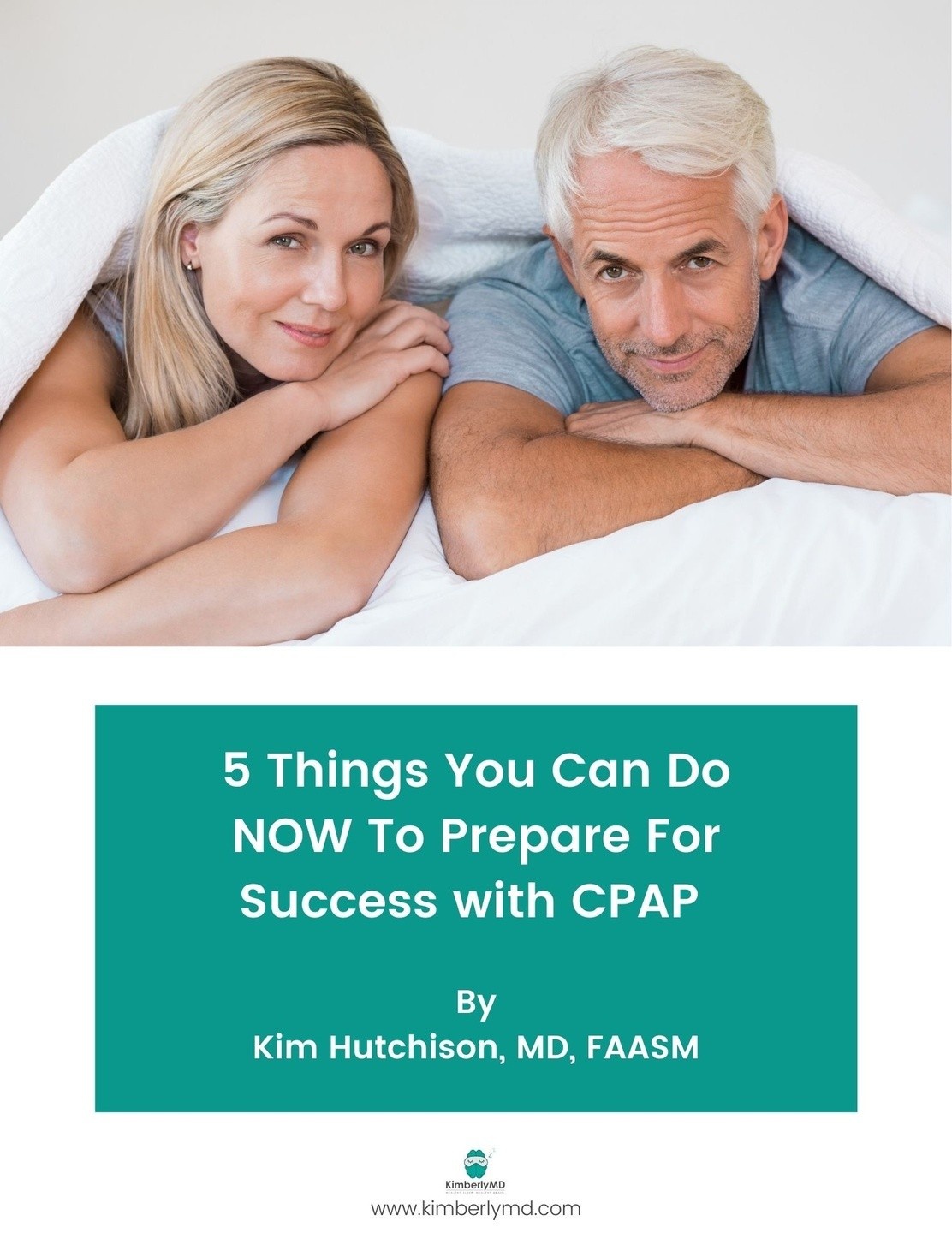COVID and Sleep
Hey Sleep Warrior:
I spent most of my Christmas this year with, you guessed it - COVID. It was my first time to get it and it hit me pretty hard. So, for today’s Sleep Byte, I wanted to dive into COVID’s effect on sleep and sleep apnea — to help myself feel better and to hopefully help some of you.
Being sick with COVID can have several effects on sleep, and may also impact sleep apnea in various ways.
First, I’ll start with COVID’s Effects on Sleep in general.
Acute COVID-19 infection can have several effects on sleep and may also impact sleep apnea in various ways.
Here's an overview:
Effects on Sleep:
- Increased Fatigue and Tiredness: Many people with acute COVID-19 report feeling more tired than usual. This can lead to increased sleepiness during the day but may paradoxically make it harder to sleep at night due to disrupted sleep patterns.
- Stress and Anxiety: The stress and anxiety associated with being ill, especially with a virus as widely discussed as COVID-19, can lead to difficulty falling asleep or staying asleep, a condition known as insomnia.
- Disruption of Sleep Patterns: Illness often leads to spending more time in bed, napping during the day, or having irregular sleep schedules. This can disrupt the body's natural circadian rhythm, leading to poor sleep quality.
- Physical Symptoms: Symptoms like fever, coughing, and difficulty breathing can make it uncomfortable to sleep, leading to frequent awakenings or difficulty falling asleep.
Impact on Sleep Apnea:
- Respiratory Symptoms: COVID-19 primarily affects the respiratory system, and symptoms like congestion, coughing, and difficulty breathing can exacerbate sleep apnea. For those with obstructive sleep apnea (OSA), these symptoms can lead to more frequent apneas (breathing pauses) and hypopneas (shallow breathing).
- Inflammation and Swelling: The virus can cause inflammation and swelling in the airway, which might worsen OSA. This is particularly concerning because OSA itself can lead to lower oxygen levels during sleep, and COVID-19 can exacerbate this problem.
- Use of CPAP Machines: For those already using CPAP machines for sleep apnea, it's important to continue using them if they contract COVID-19, unless advised otherwise by a healthcare professional. However, they should be mindful of the potential for spreading the virus to others in their household, as the machine can aerosolize the virus.
- Recovery Phase: Post-acute COVID-19, often referred to as "long COVID," can also impact sleep patterns and potentially exacerbate sleep apnea. Persistent fatigue is a common symptom during this phase.
Recommendations for Managing Sleep and Sleep Apnea During COVID-19:
- Maintain Sleep Hygiene: Stick to regular sleep schedules, ensure a comfortable sleep environment, and avoid excessive napping during the day.
- Consult Healthcare Providers: Individuals with sleep apnea should consult with healthcare providers about any adjustments needed in their treatment during a COVID-19 infection.
- Mindful CPAP Use: CPAP users should be particularly careful about hygiene and consider isolating themselves from other household members to prevent virus spread.
- Monitor Symptoms: If respiratory symptoms worsen, it's important to seek medical advice, as adjustments in sleep apnea management might be necessary.
Understanding how acute COVID-19 affects sleep and sleep apnea is crucial for managing these conditions effectively. Always consult with healthcare professionals for personalized advice and treatment adjustments.
Thanks for being here, I’ll see you next week!



